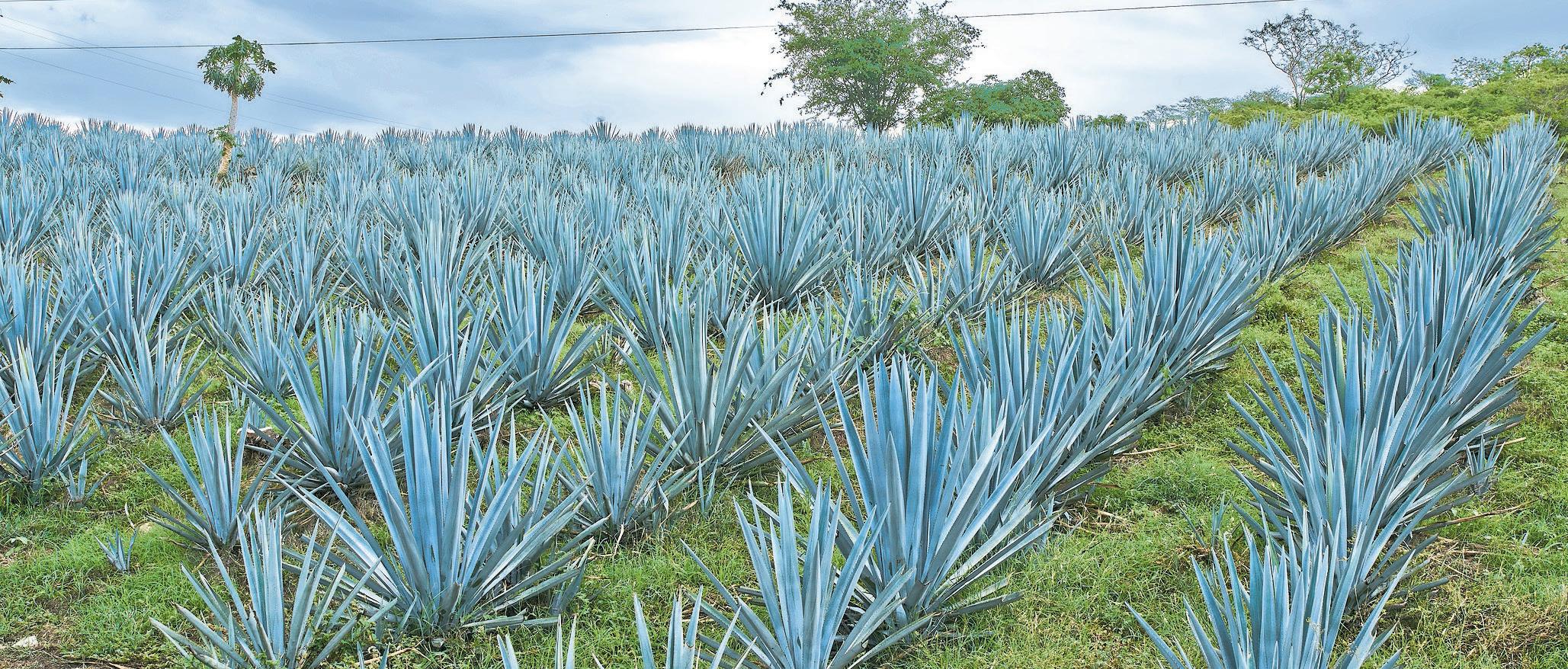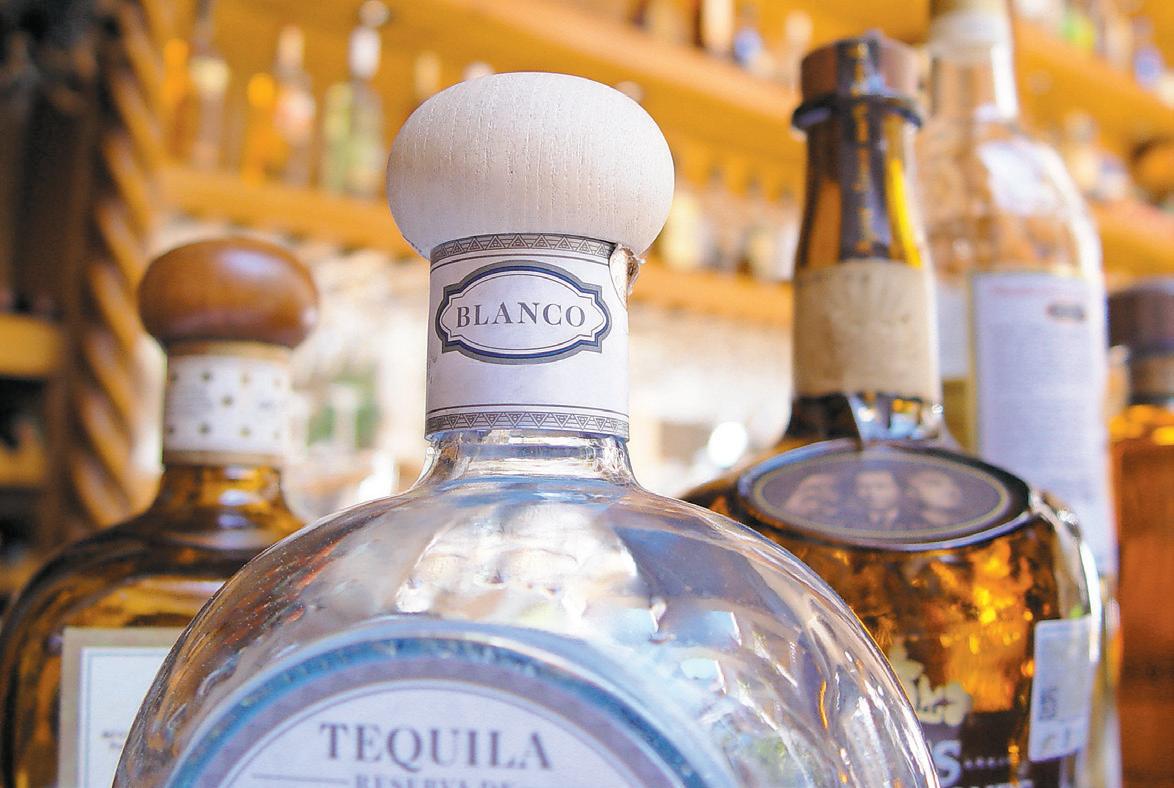
3 minute read
colleGe professors save tequila industry
Plantation of blue agave in Jalisco, Mexico.
Mexican university solves agave shortage to continue tequila production
Advertisement

Younger agave plants can now be used, keeping the quality parameters of the liquor
The Weekly Journal Staff
An investigation by the Autonomous University of Guadalajara (UAG, for its Spanish acronym) concluded young agave plants can be used in the production of tequila without altering the parameters of quality and authenticity of the drink, thus strengthening the industry.
In recent years there has been a scarcity of agave in the region. Dr. Luis A. Romero Cano, Research Professor at UAG and one of the researchers in this project, explained the growing demand for Tequila and its commercial expansion into international markets caused a particular shortage of the blue variety of the “Agave Tequilana Weber” plant, the raw material used in the production of tequila.
“According to historical data, it has been shown this phenomenon of scarcity occurs every seven or eight years due to the time it takes for the agave plant to mature for harvesting. Agave is harvested just before the flowering of the plant, when the plant reaches its maximum sugar content,” Romero Cano explained.
The university professor recalled that data shared by the Tequila Regulatory Council (CRT), from 1995 to 2012, confirms there was a transition from oversupply of agave to scarcity, and back to oversupply, which impacted the price of the raw material. Because of that, cases of product adulteration and counterfeiting were detected among disloyal producers, who began to use agave plants of different species or harvested outside the territory that corresponds to Tequila’s Denomination of Origin.
To avoid falling into these unfair practices and guarantee the liquor’s high-quality standards, several tequila companies have begun to use younger agave plants (between four and six years old) in their processes.
“However, it was suspected this practice could alter the general characteristics of the product, which in turn could affect the quality and authenticity parameters of the drink. This is where the scientific research developed at UAG began,” Romero Cano said.
Professors Dr. Armando Campos Rodríguez, Dr. Marco A. Zárate Navarro and Dr. Ana Itzel Zárate Guzmán, researchers at UAG’s Department of Biotechnology and Environment, developed a project, along with a tequila company in the region, which would scientifically support the practice of using younger agave plants.
The group of researchers recently published the article “Effect of Age of Agave Tequilana Weber Blue Variety on Quality and Authenticity Parameters for the Tequila 100% Agave Silver Class: Evaluation at the Industrial-Scale Level”, in FOODS magazine, an international, scientific, peer-reviewed, open access journal of food science that is published
semimonthly online by MDPI. In fact, The article is indexed in the Journal Citation Reports with an impact factor of 4.35. The study confirms that the determination of the isotopic ratio of carbon 13 and oxygen 18 can be presented as an auxiliary parameter for the authenticity of the liquor. Additional Data The results have been of great interest to the international scientific community, as well as to Tequila producers and consumers, since it demonstrates that the use of agave plants with different ages (four, five and six years) in the production of tequila 100% white class agave does not have a negative impact on quality parameters. These results are supported because, after the second distillation, the product complies with the NOM-006-SCFI-2012 official standard parameters. Both the scientific article and Efraín Acosta’s Master’s thesis discuss in detail the evidence obtained in the study. The results also confirm previously published studies where the determination of the isotopic ratio of carbon 13 and oxygen 18 is presented as an auxiliary parameter for the authenticity of the liquor. “This information can be useful as an auxiliary parameter to ensure, based on the content of a bottle, whether the drink has been made from an Agave Tequilana Weber blue variety plant and corroborate the geographical location where the product was made,” Romero Cano explained. Agave is harvested just before The study also shows that an effective strategy to face the scarcity and oversupply of raw material the flowering of the plant, when to produce 100% agave silver class tequila is the the plant reaches its maximum use of young agave (four years). The authors thanked the Dean of Design, sugar content. – Romero Cano, Research professor, UAG Science and Technology, as well as UAG’s Research Directorate, for the support received to achieve the publication of the article through an open service so that there is free access to the content of the article.




